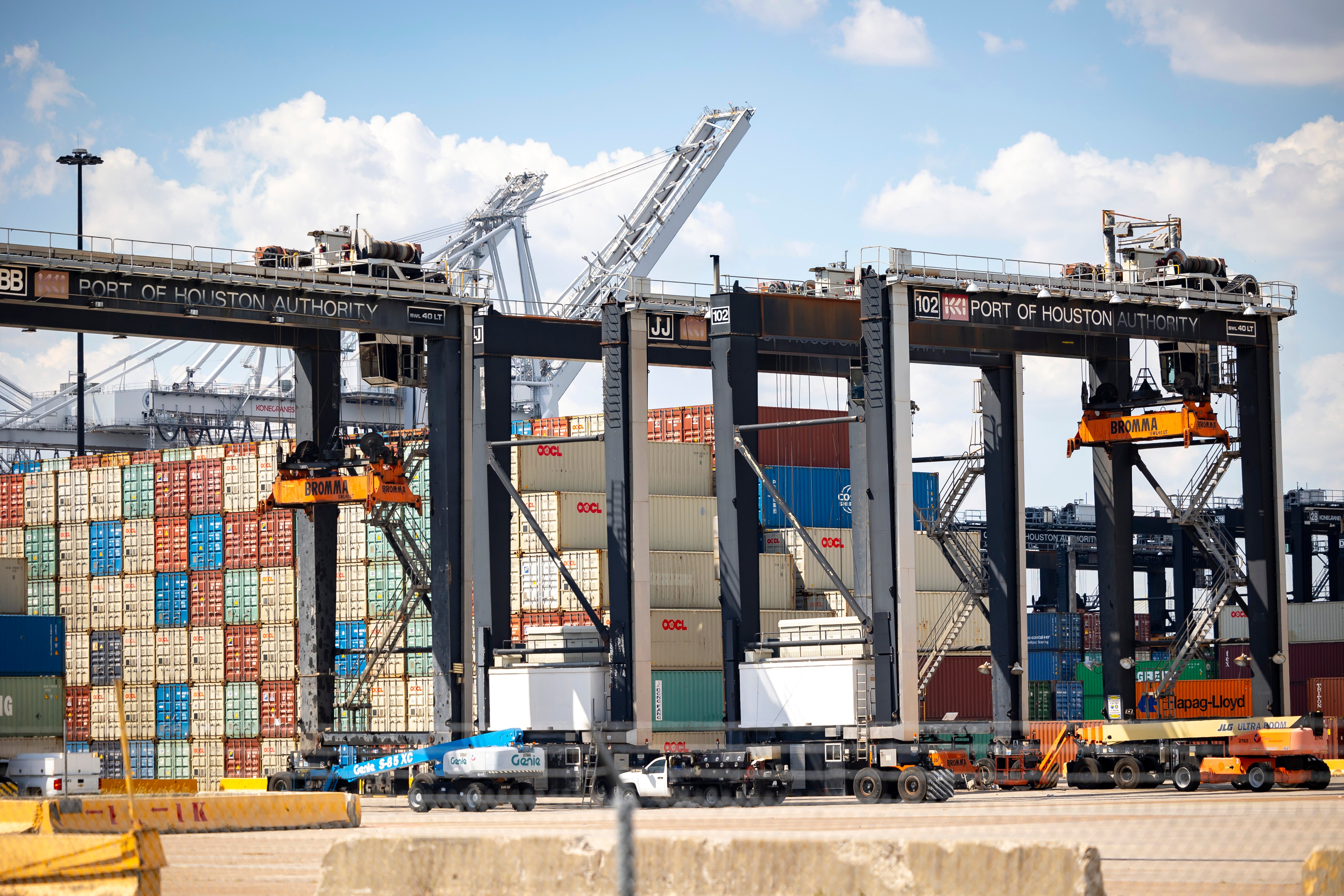Longshoremen reach tentative agreement with ports, shippers, averting a potential strike
U.S. longshoremen have reached a contract agreement with ports and shippers, averting a potential strike that could have damaged the American economy

Your support helps us to tell the story
From reproductive rights to climate change to Big Tech, The Independent is on the ground when the story is developing. Whether it's investigating the financials of Elon Musk's pro-Trump PAC or producing our latest documentary, 'The A Word', which shines a light on the American women fighting for reproductive rights, we know how important it is to parse out the facts from the messaging.
At such a critical moment in US history, we need reporters on the ground. Your donation allows us to keep sending journalists to speak to both sides of the story.
The Independent is trusted by Americans across the entire political spectrum. And unlike many other quality news outlets, we choose not to lock Americans out of our reporting and analysis with paywalls. We believe quality journalism should be available to everyone, paid for by those who can afford it.
Your support makes all the difference.U.S. longshoremen reached a contract agreement with ports and shippers Wednesday, averting a potential strike that could have damaged the American economy.
The International Longshoremen's Association union and the U.S. Maritime Alliance of ports and shipping companies said they had reached a tentative agreement for a six-year contract, a week ahead of a Jan. 15 deadline.
In a joint statement, the two sides said the agreement protects union jobs and allows ports on the East and Gulf coasts to modernize with new technology, "making them safer and more efficient, and creating the capacity they need to keep our supply chains strong.''
They said they were not releasing details of the agreement publicly to give union members a chance to review and approve the document. The ratification process is likely to take weeks.
The 45,000 longshoremen staged a three-day strike in October. They suspended the walkout after agreeing to a 62% pay increase over six years that would have sent hourly wages at the top of the pay scale from $39 to $63. But that truce was contingent upon reaching an agreement by Jan. 15 over automation: The union worried that machines — especially semi-automated cranes — would replace human workers.
According to a source familiar with the talks who requested anonymity because the details had not been made public, the agreement would give the ports more leeway to introduce modernizing technology. But in a concession to the union, they would have to hire new workers when they do, and full automation is off the table.
Wednesday's agreement came a day after the two sides resumed negotiations. “This is a win-win agreement that creates ILA jobs, supports American consumers and businesses, and keeps the American economy the key hub of the global marketplace,” they said in the statement.
A strike would have shut down ports along the East and Gulf coasts and would have begun damaging the economy if it lasted much more than a week, economists said.
Automation has long been a contentious issue at U.S. ports. Longshoremen worry that machines — such as semi-automated cranes that don't need their own individual operators — will supplant human workers. Even if the ports agree to protect existing jobs as they modernize, they could need fewer workers as they get more efficient, meaning the port workforce and the union could shrink over time.
Port operators and shipping companies argue that U.S. ports are falling behind more automated ports such as those in Rotterdam, Dubai and Singapore.
President-elect Donald Trump had weighed in for the union.
After meeting union president Harold Daggett at his Mar-a-Lago club in Palm Beach, Florida, Trump posted on social media last month that additional automation of ports would hurt workers: “The amount of money saved is nowhere near the distress, hurt and harm it causes for American workers, in this case, our Longshoremen.’’ Trump added that he knows “just about everything there is to know about’’ automation.